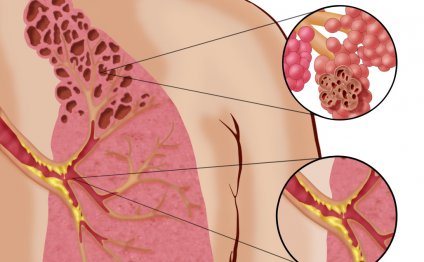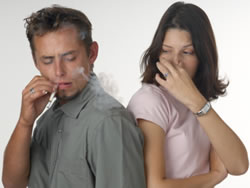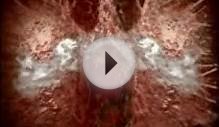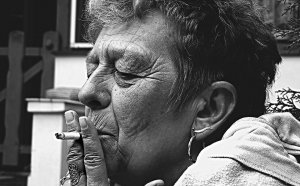
Cigarettes Lung
Research has found several risk factors that may increase your chances of getting lung cancer.
Smoking
Cigarette smoking is the number one risk factor for lung cancer. In the United States, cigarette smoking is linked to about 90% of lung cancers. Using other tobacco products such as cigars or pipes also increases the risk for lung cancer. Tobacco smoke is a toxic mix of more than 7, 000 chemicals. Many are poisons. At least 70 are known to cause cancer in people or animals.
People who smoke cigarettes are 15 to 30 times more likely to get lung cancer or die from lung cancer than people who do not smoke. Even smoking a few cigarettes a day or smoking occasionally increases the risk of lung cancer. The more years a person smokes and the more cigarettes smoked each day, the more risk goes up.
People who quit smoking have a lower risk of lung cancer than if they had continued to smoke, but their risk is higher than the risk for people who never smoked. Quitting smoking at any age can lower the risk of lung cancer.
Cigarette smoking can cause cancer almost anywhere in the body. Cigarette smoking causes cancers of the lung, mouth, nose, throat, voicebox (larynx), esophagus, liver, bladder, kidney, pancreas, colon, rectum, cervix, stomach, blood, and bone marrow (acute myeloid leukemia).

Secondhand Smoke
Smoke from other people’s cigarettes, pipes, or cigars (secondhand smoke) also causes lung cancer. When a person breathes in secondhand smoke, it is like he or she is smoking. In the United States, two out of five adults who don’t smoke and half of children are exposed to secondhand smoke, and about 7, 300 people who never smoked die from lung cancer due to secondhand smoke every year.
Radon
Radon is a naturally occurring gas that comes from rocks and dirt and can get trapped in houses and buildings. It cannot be seen, tasted, or smelled. According to the U.S. Environmental Protection Agency (EPA), radon causes about 20, 000 cases of lung cancer each year, making it the second leading cause of lung cancer. Nearly one out of every 15 homes in the U.S. is thought to have high radon levels. The EPA recommends testing homes for radon and using proven ways to lower high radon levels.
Other Substances
Examples of substances found at some workplaces that increase risk include asbestos, arsenic, diesel exhaust, and some forms of silica and chromium. For many of these substances, the risk of getting lung cancer is even higher for those who smoke.
Personal or Family History of Lung Cancer
If you are a lung cancer survivor, there is a risk that you may develop another lung cancer, especially if you smoke. Your risk of lung cancer may be higher if your parents, brothers or sisters, or children have had lung cancer. This could be true because they also smoke, or they live or work in the same place where they are exposed to radon and other substances that can cause lung cancer.
Radiation Therapy to the Chest
Cancer survivors who had radiation therapy to the chest are at higher risk of lung cancer.
Diet
Scientists are studying many different foods and dietary supplements to see whether they change the risk of getting lung cancer. There is much we still need to know. We do know that smokers who take beta-carotene supplements have increased risk of lung cancer. For more information, visit Lung Cancer Prevention.
VIDEO REVIEWS



Share this Post
Related posts
Tobacco history facts
Nicotine was isolated from tobacco leaves ( Nicotiana tabacum ) in 1828, but the powerful effects of nicotine were already…
Read MoreHistory of tobacco Regulation
National Commission on Marihuana and Drug Abuse THE BAN ON ADVERTISING Both the U.S. Public Health Service and Federal Trade…
Read More
 A cigarette (from the French for "small cigar". Cigar comes, through the Spanish and Portuguese cigarro, from the Mayan siyar; "to smoke rolled tobacco leaves") is a small roll of finely cut tobacco leaves wrapped in a cylinder of thin paper for smoking. The...
A cigarette (from the French for "small cigar". Cigar comes, through the Spanish and Portuguese cigarro, from the Mayan siyar; "to smoke rolled tobacco leaves") is a small roll of finely cut tobacco leaves wrapped in a cylinder of thin paper for smoking. The...
 A Frank Statement to Cigarette Smokers was a historic advertisement run by major American tobacco companies on January 4, 1954 in response to a study showing that cigarette tar caused cancerous tumors on mouse skin. The ad ran in more than 400 newspapers throughout...
A Frank Statement to Cigarette Smokers was a historic advertisement run by major American tobacco companies on January 4, 1954 in response to a study showing that cigarette tar caused cancerous tumors on mouse skin. The ad ran in more than 400 newspapers throughout...










